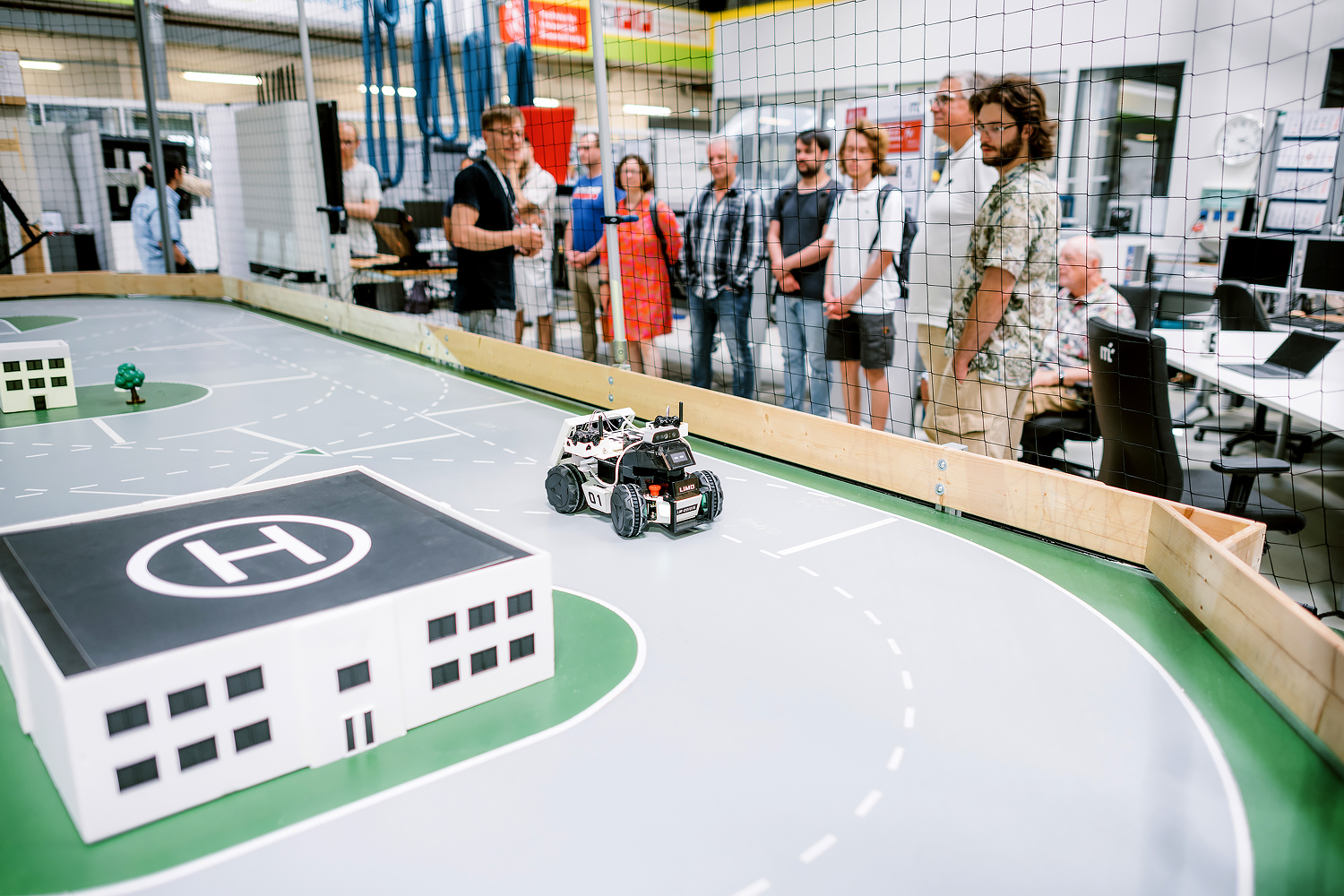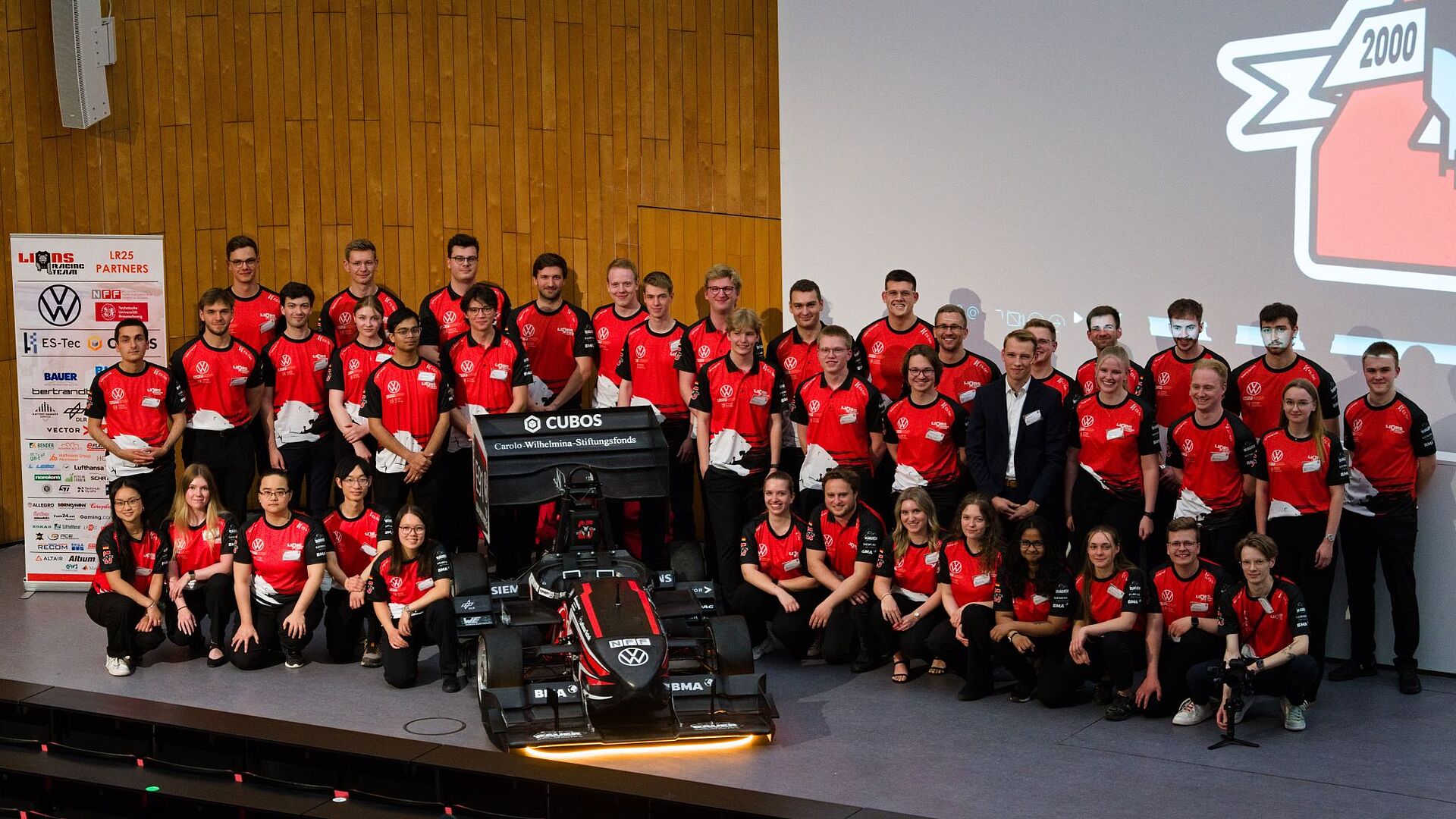Project Description
As part of the three-year research project "lautlos&einsatzbereit", the Lower Saxony Police, together with the Technische Universität Braunschweig and the Lower Saxony Research Center for Automotive Engineering (NFF), tested the combined use of plug-in hybrid (PHEV) and battery electric vehicles (BEV). The collection of extensive measurement data regarding mobility and charging requirements in the total of 27 hybrid and 26 battery-electric vehicles, as well as in the 51 charging points, enabled a scientific accompanying research by the Technische Universität Braunschweig. The research project focused on the question of whether electrified vehicles are suitable under extreme conditions, but also for general use by the police, and what challenges a functioning electrified fleet entails. The project video (in German) provides an insight into the project.
Guideline "Electromobility for Government Fleets"
This guideline for the integrated planning and management of fleet, charging and energy infrastructure, which was developed within the research project, supports decision-makers from politics and administration, fleet and charging infrastructure managers, as well as users in the planning, procurement and operation of fleets with special requirements and thus enables the transfer of the results achieved to other areas with similar application profiles. The guideline (in German) is freely available as a download.
Project coordination/contact
- Dr. Kerstin Schmidt (Technische Universität Braunschweig)
- Oliver Suckow (Lower Saxony Police, Mail)
Project Partners
- Niedersächsiches Forschungszentrum Fahrzeugtechnik (NFF)
- Technische Universität Braunschweig
- Lower Saxony Police
Initial Situation, Problem and Objective
Police fleets are characterized by a large number of different vehicle types, a high number of vehicles and a high visibility of their vehicles. A sustainable and environmentally friendly operation of these fleets by using new drivetrain technologies is due to their exemplary function in society of particular relevance. Therefore, the police in Lower Saxony takes a pioneering role in integrating battery-electric (BEV) as well as plug-in hybrid vehicles (PHEV) into their fleets.
The use of BEV´s and PHEV´s, compared to conventionally powered vehicles, is accompanied by long charging times, limited driving range and availability of the vehicles. Moreover, an energy and charging infrastructure is required for the operation of the alternatively powered vehicles. With the planned, combined use of BEV and PHEV in Services and Patrol Duty, the police is facing the challenge of ensuring the availability of their vehicles in a continuous 24/7 service. This results in a multitude of dependencies between the fleet, energy and charging infrastructure. Furthermore, the complexity in planning and controlling the fleet is multiplied.
In the project "lautlos&einsatzbereit", 53 BEV´s and PHEV´s were integrated into the fleet of the police of Lower Saxony. The vehicles were tested and evaluated in areas of application of services and patrol duty, criminal investigation services as well as fiscal runs. The operation of the vehicles was accompanied by scientific research that focuses on the collection of the mobility requirements and charging demands in all fields of operation. The results of the project were summarized in a guideline that serves the integrated planning as well as the ecological and economical operation of vehicle fleets under extreme conditions. The guideline can assist decision-makers concerning planning, procurement and operation of electric vehicle fleets, especially under extreme conditions (e.g., additional police fleets, but also fire fighters or rescue services).

![[Translate to English:] [Translate to English:]](/fileadmin/_processed_/e/9/csm_2025-05_Bild_des_Monats_Mai_2025_eeceec1404.jpg)

